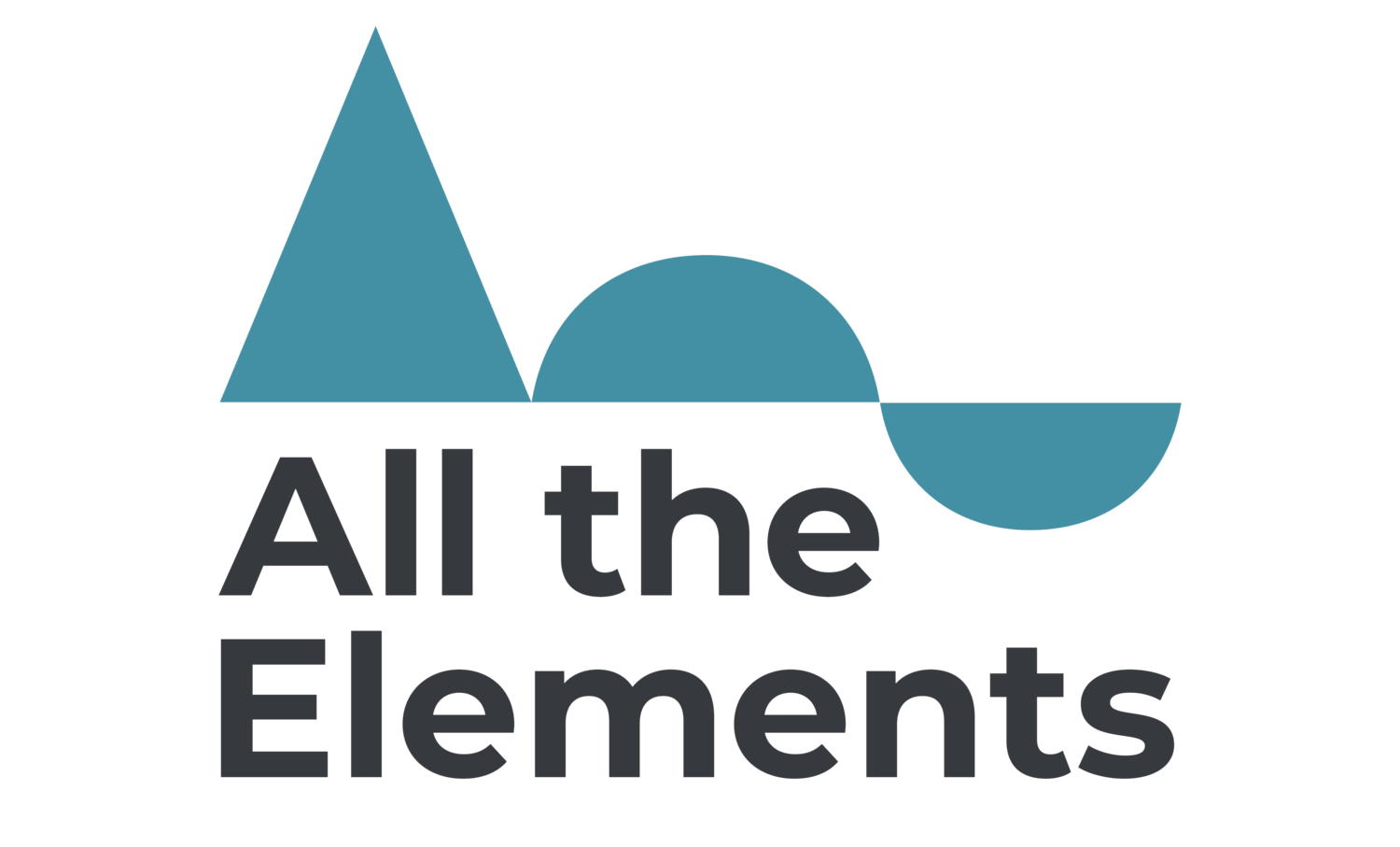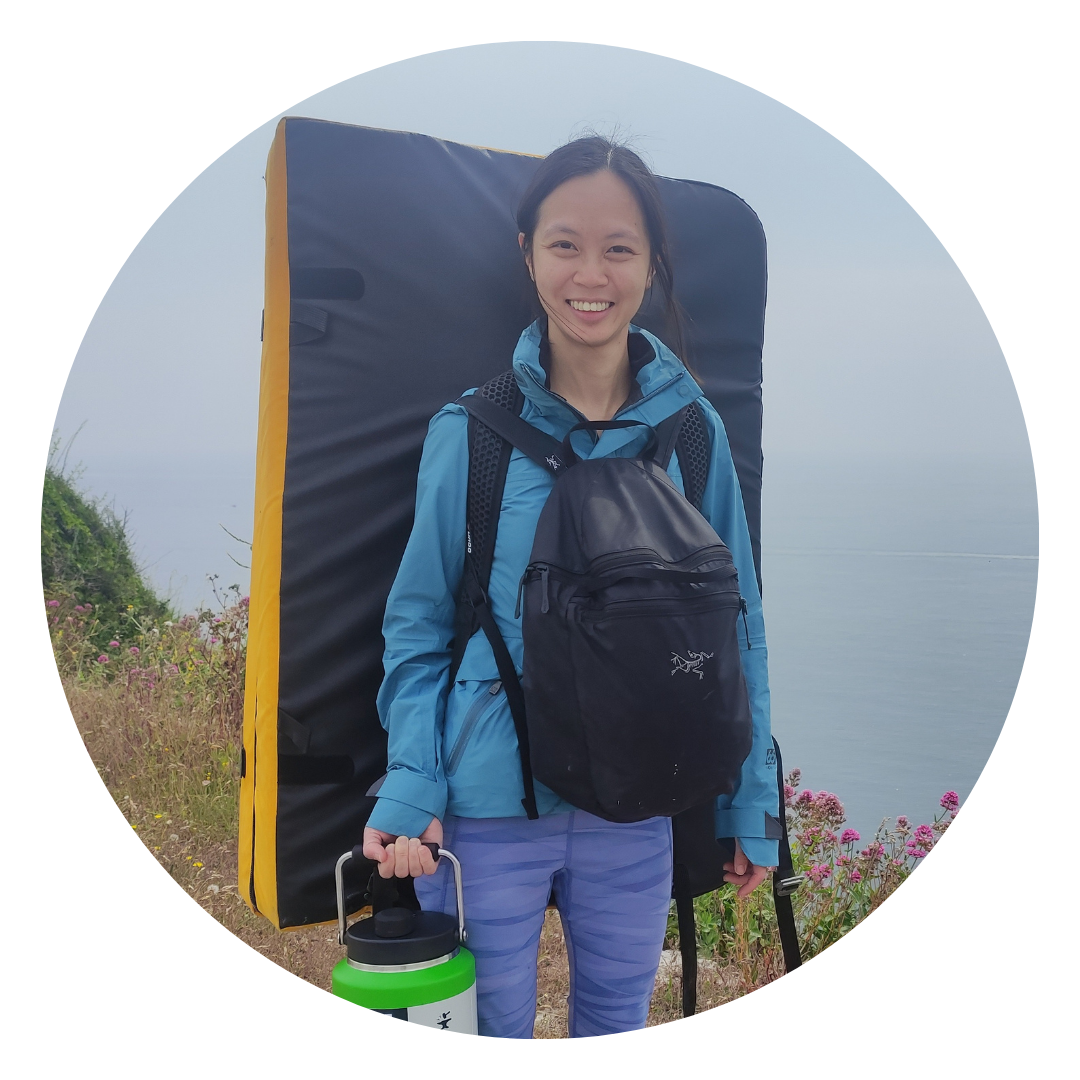Organising Climbing Trips with Xin Hui Yeo from ClimbMuz
Where do you learn how to run inclusive climbing trips? Some people might draw inspiration from running events in their professional lives, others might attend training sessions - and some of us definitely learn as we go. For Xin, ClimbMuz’s Community Support, it’s something she’s built up through attending events. Experiencing moments that have helped her to feel supported, reflecting on them and incorporating them into her own practice.
ClimbMuz is a climbing group that has been running since July 2021. Creating a welcoming community for Muslim women and women of colour to experience the thrill of climbing in a safe, supportive space. We caught up with Xin to learn more about some of the lessons and insights she has to share.
In your role with ClimbMuz, you’re helping to develop and run climbing trips, and sometimes helping people to climb outside for the first time. What was your first outdoor climbing experience like?
My first outdoor climbing experience was at Southern Sandstone three years ago on a day trip organized by ClimbMuz, with support from climbing club Black Lizard.
It was my first time top-roping outdoors, and I quickly realized how different it felt from indoor climbing. Unlike the structured holds of a climbing gym, I had to learn to trust what nature provided: carefully reading the rock to find my next hand and foot placements. The sandstone formations weren’t particularly high, but they still challenged my fear of heights. However, reaching the top was incredibly rewarding; not just for the climb itself, but also for the breathtaking view of the surrounding greenery and the sight of trains passing in the distance. It was a refreshing contrast to indoor climbing, where the backdrop is just walls and other climbers.
Having a patient and encouraging instructor really helped and Mona has been supporting ClimbMuz on all our trips since then. This experience ignited my passion for outdoor climbing, inspiring me to explore more crags and deepen my connection with the sport, especially as I had started feeling a plateau in indoor climbing.
Since then you've been on lots of different trips with different communities, what are some of the things you've experienced that helped you feel welcome?
Since my first trip, I’ve had the privilege of climbing outdoors with different communities at climbing festivals and trips, including those hosted by outdoor clothing brand Arc’teryx, outdoors grassroots collective, Wanderers Of Colour, the LGBTQIA+ Climbing Festival, ClimbOut, and women’s outdoor climbing organisation, the Pinnacle Club. Each of these experiences has reinforced my sense of belonging in unique ways.
One of the most impactful aspects has been the effort to make climbing spaces more inclusive and accessible. Reducing transport and cost barriers plays a huge role - organising shared transport or offering lift shares for those without cars makes crags more accessible and removes a major logistical hurdle.
Financial support, such as subsidised trips, gear rentals, or tiered ticketing, also lowers barriers to entry, allowing more people, including myself, to participate in outdoor climbing and skill-building courses.
I’ve also learned from ClimbOut and the WoC Festival that creating dedicated spaces, such as reserved areas for people of colour, gender-specific accommodations, and quiet spaces, can make a significant difference. These spaces provide comfort for climbers who might prefer them, whether due to cultural, gender, or neurodivergent needs. Additionally, accommodation options that cater to different comfort levels, such as offering both tent camping and dormitory-style lodging, ensure that everyone can participate in a way that suits them.
Another key factor is trips that cater to a range of skill levels. Whether you’re a beginner, an experienced climber, or someone looking to refine specific techniques, feeling supported in your progression fosters a strong sense of community. The best trips acknowledge that climbers come from diverse backgrounds with different interests, resources, and goals, ensuring no one feels left out, whether they’re looking for a casual social experience or structured skill development.
Finally, food plays a crucial role in a successful climbing trip. Climbers need energy, so catering to different dietary needs, such as ensuring vegetarian, or halal options are as thoughtfully prepared as meat options in communal meals, is essential. These inclusive considerations have made me feel truly welcome and have inspired me to help create similarly thoughtful spaces for others.
It sounds like you’ve been part of some amazing trips. How do these experiences influence the way you plan for ClimbMuz?
These experiences have made me much more mindful of the importance of inclusivity, accessibility, and community support when organizing trips.
Some of the biggest takeaways are:
The ease of the booking system,
The availability of information
And timely communication from the organiser.
I believe every climbing trip should offer reasonable accommodations, clear communication, and enough structure to provide a smooth experience while still allowing participants the freedom to enjoy themselves.
It can be frustrating to arrive at a trip and not know where to register, who holds key information, or what changes have been made to the schedule. A lack of clarity can affect people’s ability to focus on climbing and enjoying the experience.
I find a dedicated trip WhatsApp group invaluable for communication purposes, both before and during the trip for queries and liaison purposes. It allows for quick updates, answering queries, and keeping everyone in the loop. Listening to members' needs is also a priority—by centering events and trips around their interests, we can create experiences that are truly inclusive.
Knowing how difficult it can be for climbers without a car to access crags, ClimbMuz makes a conscious effort to coordinate lifts and car-sharing, even covering rental car fees and giving incentives to drivers to ensure that transport isn’t a limiting factor.
Similarly, we try to keep costs manageable by organising budget-friendly trips, including courses, and advocating for financial support where possible. We also make space for different climbing levels and interests, ensuring that there’s something for everyone, whether it’s a beginner-friendly introduction, skill progression, or just a space to enjoy nature and social connection. By actively checking in with participants about their needs, we aim to create a welcoming environment where everyone feels comfortable, supported, and empowered to develop at their own pace.
You’ve already spoken about a lot of different ways to help make trips more inclusive. Including the cost, transport, communication, and food considerations. Is there anything else you think people should do more of when they plan trips?
From an intersectional perspective, it’s important to be mindful of the broader climbing community and avoid scheduling conflicts with major events. For example, during the summer when multiple climbing events take place, we try to avoid scheduling ClimbMuz trips on the same weekend as events like ClimbOut, ensuring that queer Muslim climbers don’t have to choose between the two.
Accessibility should also be considered and prioritized, often this starts by looking at what you can do. This could look like adjustments such as providing suitable environments for climbers with disabilities and considering and communicating approach distances and terrain, as well as providing quiet space for meditation and prayers. One element we are mindful of is noise levels, as we know that if an environment is too noisy it can become overwhelming for some people. Small adjustments can go a long way in making trips more inclusive and enjoyable for everyone involved.
There’s definitely lots to think about! What's next for ClimbMuz is there anything you are currently planning?
This year is an exciting one for ClimbMuz, as we’re trialing a new initiative that directly supports the progression of our community members.
Our group is made up predominantly of beginners, but we also have a smaller number of more advanced climbers. To support both groups, we are offering the more advanced climber group a trip in Wales to develop their trad climbing (short for traditional climbing - a form of climbing where you place your own ‘protection’ from falling as you climb) and multi-pitch trad. Those advanced climbers will then be the ones supporting the beginner trip later on in the Peak District. Climbers who are comfortable doing so will be working with an instructor to set up anchor and put up rope for outdoor beginners to top rope on gritstone.
This initiative aligns with ClimbMuz’s mission of supporting climbing progression while also creating a platform for skill application and community contribution. Not only does this boost confidence and independence within the group, but it also reduces reliance on paid instructors, promoting the long-term sustainability of ClimbMuz.
Ultimately, our goal is to build a self-sustaining, supportive climbing community where knowledge is shared, opportunities are accessible, and everyone feels empowered to grow in the sport.
____________________________________________________________________________
Find out more about ClimbMuz here and follow their work on Instagram.
If you’ve enjoyed this article you might enjoy reading some of our other Community Spotlights and you can sign up to our newsletter to follow all our latest posts.
About Xin Hui Yeo
I am a specialist in special care dentistry by day and a climber in my free time! Originally from Malaysia, I came to the UK for my studies and have been here ever since. I started climbing four years ago and love how it takes me to incredible places with breathtaking scenery. I’m part of the ClimbMuz committee and also volunteer as a facilitator with WoC and the London ESEA group







